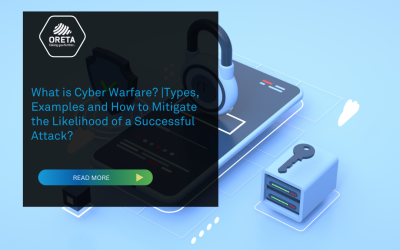1. Understanding Data Loss Prevention (DLP)

What is DLP?
DLP is a cybersecurity strategy designed to prevent sensitive data from being exposed, accessed, or leaked, whether accidentally or maliciously. It protects data in three primary stages: in use (during operations), in motion (when transmitted across networks), and at rest (when stored in databases or other systems).
For UAE businesses, DLP is essential as it ensures that customer data, personal data, health data, intellectual property, and financial information remain secure. This is particularly important in industries like finance, healthcare, and retail, where a breach could result in severe financial penalties and reputational damage.
Why DLP Matters to UAE Businesses
Protecting Business Assets: Intellectual property and proprietary data are at constant risk. DLP tools help secure these valuable assets from both insider threats and external cyberattacks.
Compliance with UAE Regulations: The UAE is tightening its regulatory environment regarding data protection. By implementing DLP strategies, organisations can comply with national data protection laws, such as the UAE Data Protection Law, the Dubai International Financial Centre (DIFC), and the Abu Dhabi Global Market (ADGM) data protection regulations.
Avoiding Costly Breaches: A global report by IBM indicates that the average cost of a data breach in 2023 was AUD 4.9 million (approximately AED 11.3 million). With the rise of cyber incidents, this figure is a stark reminder that businesses must invest in preventive solutions like DLP to avoid these costly breaches.
2. Third Party Risk Management: Mitigating External Threats

As businesses grow and rely on external vendors for IT, network and cloud services, along with other operations, the risks posed by third parties have increased dramatically. A recent report from the Australian Cyber Security Centre (ACSC) revealed that 62% of businesses were concerned about the security risks associated with third-party service providers. These risks extend to UAE businesses, as the same vulnerabilities apply across industries and regions.
Why Third Party Risk Management is Critical
When third-party vendors handle sensitive data or have access to your systems, they can introduce vulnerabilities into your organisation. Poor cybersecurity practices on their end can expose your company to potential data breaches.
Key Elements of Third Party Risk Management
Thorough Vendor Assessment: Conducting detailed risk assessments before engaging with third-party vendors is critical. This includes evaluating their security controls, data handling practices, elevated access review and compliance with relevant regulations.
Continuous Monitoring: Even after selecting a vendor, it is essential to continuously monitor their activities and conduct regular reviews of their security posture.
Contractual Safeguards: Ensure contracts include clear data protection clauses that align with your company’s DLP policies and regulatory requirements. This guarantees that vendors understand their responsibilities when handling sensitive information.
3. How DLP and Third Party Risk Management Work Together

DLP and Third Party Risk Management are most effective when integrated into a cohesive cybersecurity strategy. By combining DLP solutions with a comprehensive vendor risk management programme, UAE businesses can safeguard data at every point—whether it is stored internally or shared with external partners.
Unified Approach to Data Security
By adopting a unified approach, businesses can streamline their efforts to prevent data breaches, ensuring that both internal and external risks are managed effectively. Integrating DLP with third-party management also reduces the complexity of your security infrastructure, making it easier for C-suite executives to manage and oversee.
Case Study: UAE Financial Services Firm
A leading financial services firm in the UAE faced significant challenges in managing the risks associated with handling sensitive customer data while collaborating with numerous third-party vendors. With increasing regulations such as the UAE Data Protection Law, the firm realised the need to overhaul its cybersecurity practices, particularly around DLP and Third Party Risk Management.
By implementing a comprehensive DLP solution, the company was able to gain full visibility into how data was being accessed, used, and shared across its network. This allowed them to prevent unauthorised access to customer information, reducing the risk of breaches by 35% within the first six months. Additionally, by enhancing their third-party risk management protocols, the firm successfully vetted and monitored vendors more effectively, ensuring that all third parties complied with the firm’s security policies.
The result was a 40% reduction in vendor-related incidents and improved compliance with UAE data protection regulations, positioning the company as a leader in data security within the financial services industry.
4. Regulatory Compliance in the UAE: Staying Ahead of the Curve

The UAE has made significant strides in creating a regulatory framework for data protection. With laws like the UAE Data Protection Law and the frameworks of DIFC and ADGM, compliance is no longer optional. Non-compliance could lead to hefty fines, business disruptions, and reputational damage.
DLP and Third Party Risk Management play a crucial role in ensuring compliance with these regulations by:
Protecting Personal and Sensitive Data: DLP can be tailored and will ensures that personal data is protected according to local laws, reducing the risk of accidental exposure.
Vendor Compliance: By integrating Third Party Risk Management, businesses can ensure that all third-party vendors handling sensitive information also adhere to UAE regulations.
5. Practical Steps for Implementing DLP and Third Party Risk Management
Conduct a Cybersecurity Audit: Start by assessing your organisation’s current cybersecurity posture. Identify gaps in your data protection and vendor management practices.
Choose the Right DLP Tools: When selecting a DLP solution, ensure it fits your organisation’s needs, from monitoring data movement to enforcing policies that protect sensitive information.
Implement Vendor Management Protocols: Establish clear protocols for evaluating and monitoring third-party vendors. Ensure that your contracts include security provisions and require vendors to comply with relevant data protection regulations.
Continuous Monitoring and Incident Response: DLP and vendor risk management are not one-off projects. Continuously monitor your data flows and vendor activities, and ensure you have a robust incident response plan in place.
Securing the Future of Your Business in the UAE
By investing in Data Loss Prevention and Third Party Risk Management, UAE businesses can protect their assets, maintain regulatory compliance, and build trust with their customers and stakeholders. As your business continues to grow and innovate, these cybersecurity measures will serve as the foundation of a secure and sustainable future.
Oreta is committed to helping businesses in the UAE safeguard their data through advanced cybersecurity solutions tailored to the region’s unique challenges. Reach out to us to learn more about how we can help you secure your data and mitigate third-party risks.






